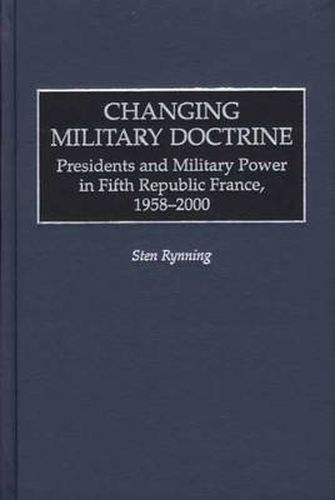Readings Newsletter
Become a Readings Member to make your shopping experience even easier.
Sign in or sign up for free!
You’re not far away from qualifying for FREE standard shipping within Australia
You’ve qualified for FREE standard shipping within Australia
The cart is loading…






As Rynning shows, armed forces have a natural interest in shaping military doctrine according to their resources, doctrinal traditions, as well as their assessment of the international environment. However, armed forces are also the instrument of policy-makers who are in charge of national security. Using civil-military relations in France from 1958 to the present as a case study, he shows when policy-makers are capable of controlling military doctrine as well as the means armed forces rely on to influence doctrine.
Some scholars argue that policy-makers can control military doctrine only when the international environment is threatening–a situation granting them added decision-making authority. Others argue that such control ultimately depends on the degree of domestic political disagreement/consensus. With access to most of the leading military personnel and policy-makers of the era, Rynning provides an analysis that will be instructive to scholars as well as policy-makers and military leaders concerned with contemporary civil-military relations.
$9.00 standard shipping within Australia
FREE standard shipping within Australia for orders over $100.00
Express & International shipping calculated at checkout
As Rynning shows, armed forces have a natural interest in shaping military doctrine according to their resources, doctrinal traditions, as well as their assessment of the international environment. However, armed forces are also the instrument of policy-makers who are in charge of national security. Using civil-military relations in France from 1958 to the present as a case study, he shows when policy-makers are capable of controlling military doctrine as well as the means armed forces rely on to influence doctrine.
Some scholars argue that policy-makers can control military doctrine only when the international environment is threatening–a situation granting them added decision-making authority. Others argue that such control ultimately depends on the degree of domestic political disagreement/consensus. With access to most of the leading military personnel and policy-makers of the era, Rynning provides an analysis that will be instructive to scholars as well as policy-makers and military leaders concerned with contemporary civil-military relations.